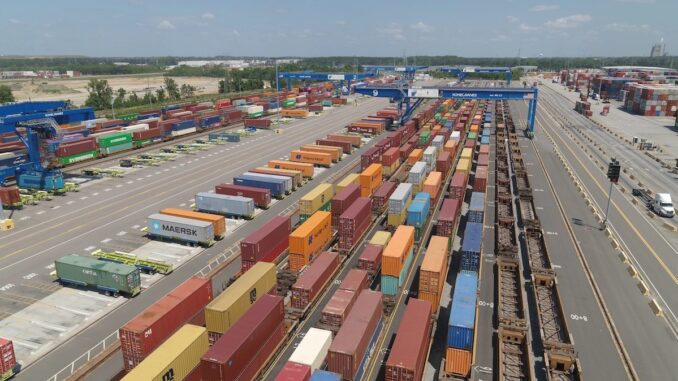
With train length and the number of long trains increasing, the Federal Railroad Administration finalized three reports on the safety and performance of long trains. FRA recently sent these reports to the National Academy of Sciences to inform an ongoing NAS study mandated by Congress in President Biden’s Bipartisan Infrastructure Law to look at the impact of trains longer than 7,500 feet.
FRA’s reports include findings from tests conducted on air brake racks and the air brake system of a stationary train to examine how the length of long trains affects air brake system behavior and performance. FRA’s research team also conducted tests on a moving train to better understand the dynamic performance of long trains and collect data on train dynamics and brake system performance.
The FRA reports, titled Phase II, Phase III, and Phase IV, are available online. The research found air brake systems performed largely as expected when testing was performed under ideal circumstances and in a controlled environment, but FRA officials said the reports identified negative impacts on safety and performance.
Key findings include:
- Phase II of testing, using only head-end power, found that the likelihood of unintended brake releases was higher with longer trains and that increased train lengths led to slightly slower brake response times
- Phase III of testing found that distributed power train configurations achieve better braking capability than only head-end power on long train operations
- Phase IV of testing found when long trains climbed a grade, certain sections of the train consist experienced elevated buff forces and coupler forces, which can influence how a train behaves and impact the safe handling of trains with distributed power
- Phase IV of testing concluded that further testing is needed to identify potential safety gaps when operating long trains in non-ideal operating conditions
- The research team also made clear in Phase IV, the final phase of testing, that additional research, testing and analysis is recommended to provide a better understanding of how long trains impact the durability of rolling stock mechanical components
In April 2023, FRA issued a Safety Advisory to railroads and their employees following a series of derailments that were found to be caused by improper train makeup. These included Union Pacific Railroad derailments in Hampton, Iowa; Sibley, Iowa; and Rupert, Idaho; as well as a Norfolk Southern Railway derailment in Albers, Illinois.
FRA also issued a Safety Advisory in May 2023 on long trains in response to NS derailments in Springfield and Ravenna, Ohio; and a UP derailment in Rockwell, Iowa. The advisory highlighted the potential safety risks of long trains blocking rail crossings, especially the impacts that blocked crossings in communities can have on first responders as they work to address emergencies and reach people in need.
There is no federal statute regarding restricting train length nor one on how long trains may block crossings.

